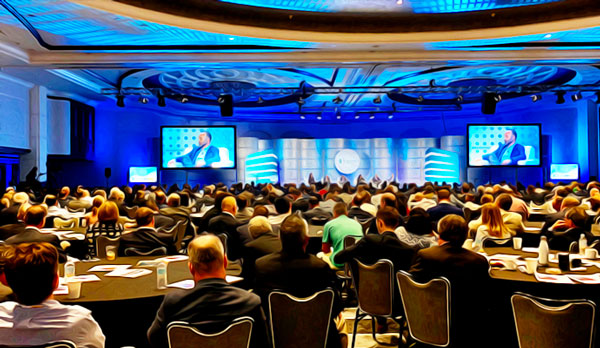Trending
CREFC 2018: Amazon, retail bankruptcies, Trump tax law and more
Job creation has allowed for one of the longest CRE cycles, panelists said

From TRD Miami: Shifting trends in retail, blockchain technology, the effect of the Trump administration and CMBS trading were top of mind this week at the Commercial Real Estate Finance Council Miami 2018 conference in Miami Beach.
Many real estate finance industry insiders said Trump’s impact on the commercial real estate industry is positive, but warned of his dangerous rhetoric. The White House’s tax bill will push more Americans away from home ownership and into renting, boosting the country’s multifamily markets, they said.
During a panel covering the overall market cycle, panelists agreed that job creation has allowed for one of the longest commercial real estate cycles. Construction lending is difficult to secure, pricing has surged ahead of demand and transactions have slowed down, but the market fundamentals are still good. Among the concerns were low cap rates and extremely aggressive property appraisals.
Speaking to a standing-room only crowd at the opening keynote session, former Whole Foods co-CEO Walter Robb discussed Amazon’s $13.7 billion acquisition of the grocery store chain, its history and strategy when opening new stores.
The acquisition gave Amazon legitimacy in the food world, something it had been struggling with, experts said. Amazon’s quick move to slash prices of some items by more than 40 percent a day after announcing the deal also allowed the company to drive the conversation and shed its “whole paycheck” nickname. Traffic jumped 25 percent following the price cuts. Whether that remained in the long term is irrelevant because perception often becomes reality, CREFC panelists said.
About 2,000 of Whole Foods’ 365 items are now available on Amazon. The company has also brought its items into Whole Foods stores, plus added lockers for package pickups – giving it a strong foothold in the online grocery business, an area that has caused struggles for most retailers.
Overall, Amazon controls about 40 percent of all online sales.
While department stores like Bon-Ton, Sears and Stein Mart have struggled with declining foot traffic, TJ Maxx, owned by TJX Companies, has virtually no online shopping presence and is outperforming most big-box stores. In 2017, 34 retailers declared bankruptcy and more are preparing to do, according to Bloomberg.
For mall owners and lenders, losing an anchor is considerably more difficult to recover from than losing smaller tenants. Some said the closures are creating opportunities for affordable housing and other uses. At the same time, panelists cautioned against oversaturating healthy retailers by bringing in too many gyms, restaurants and fast fashion retailers like H&M and Forever 21, for example.
“Experiential real estate is code for we don’t know what to do next,” one panelist said.




